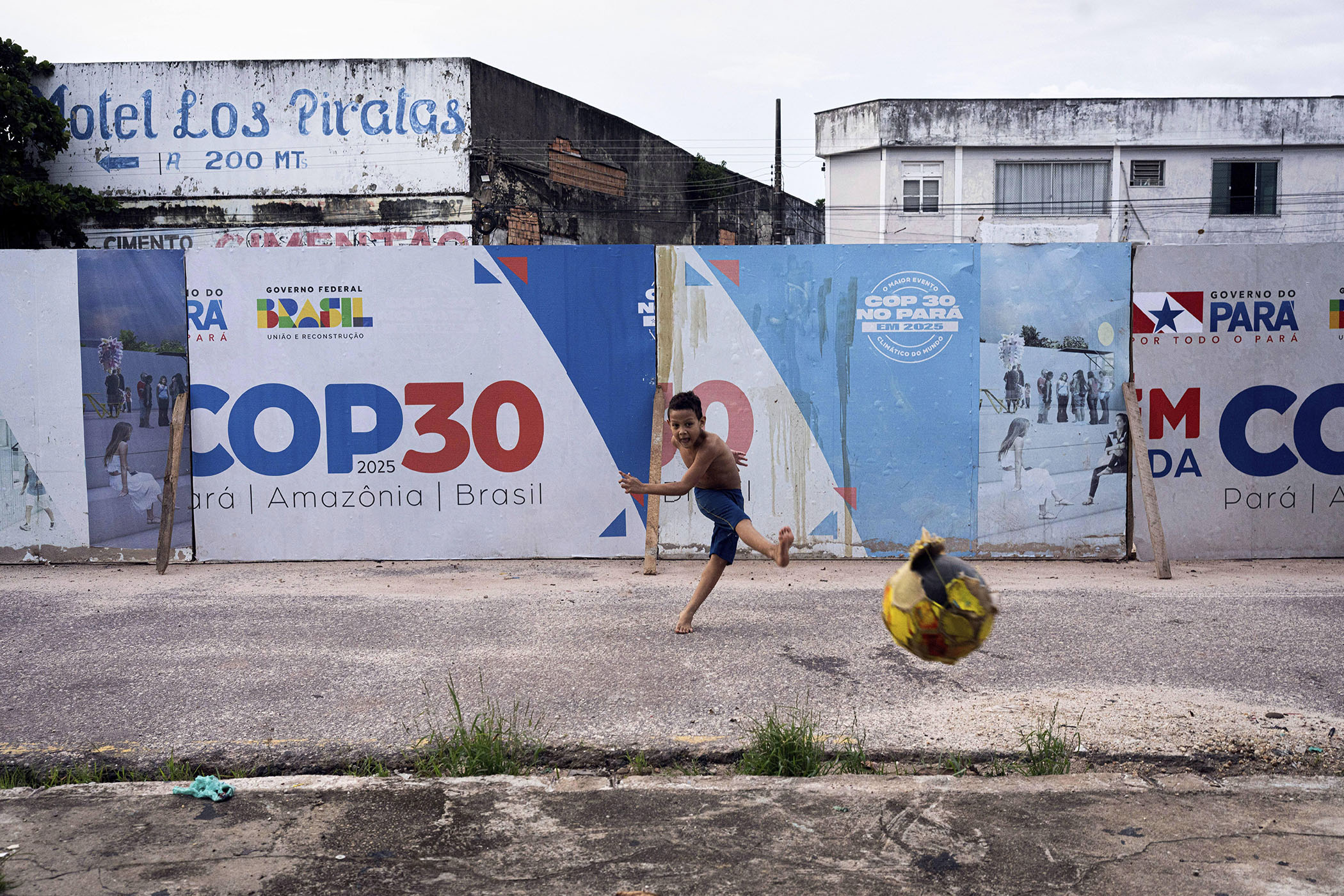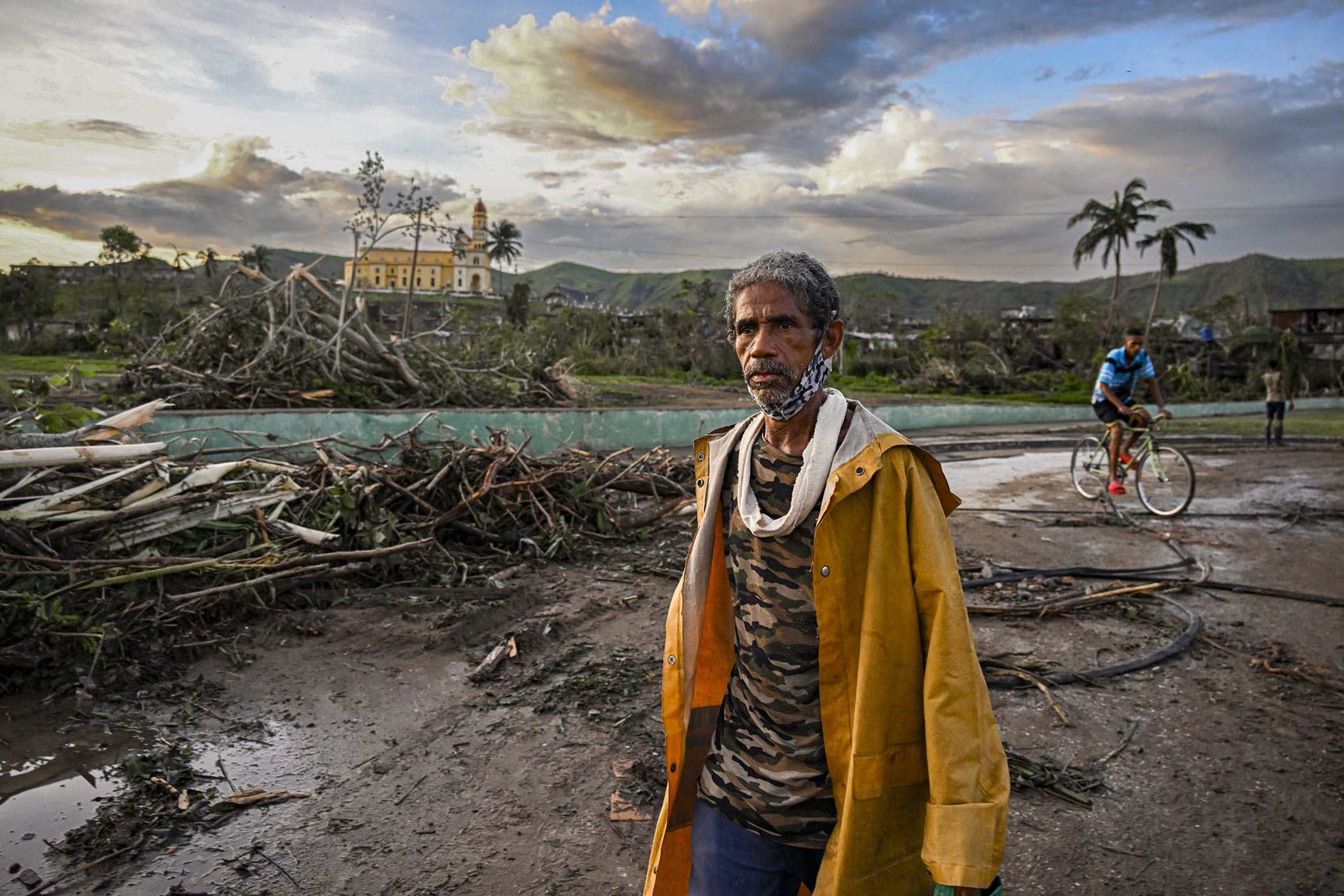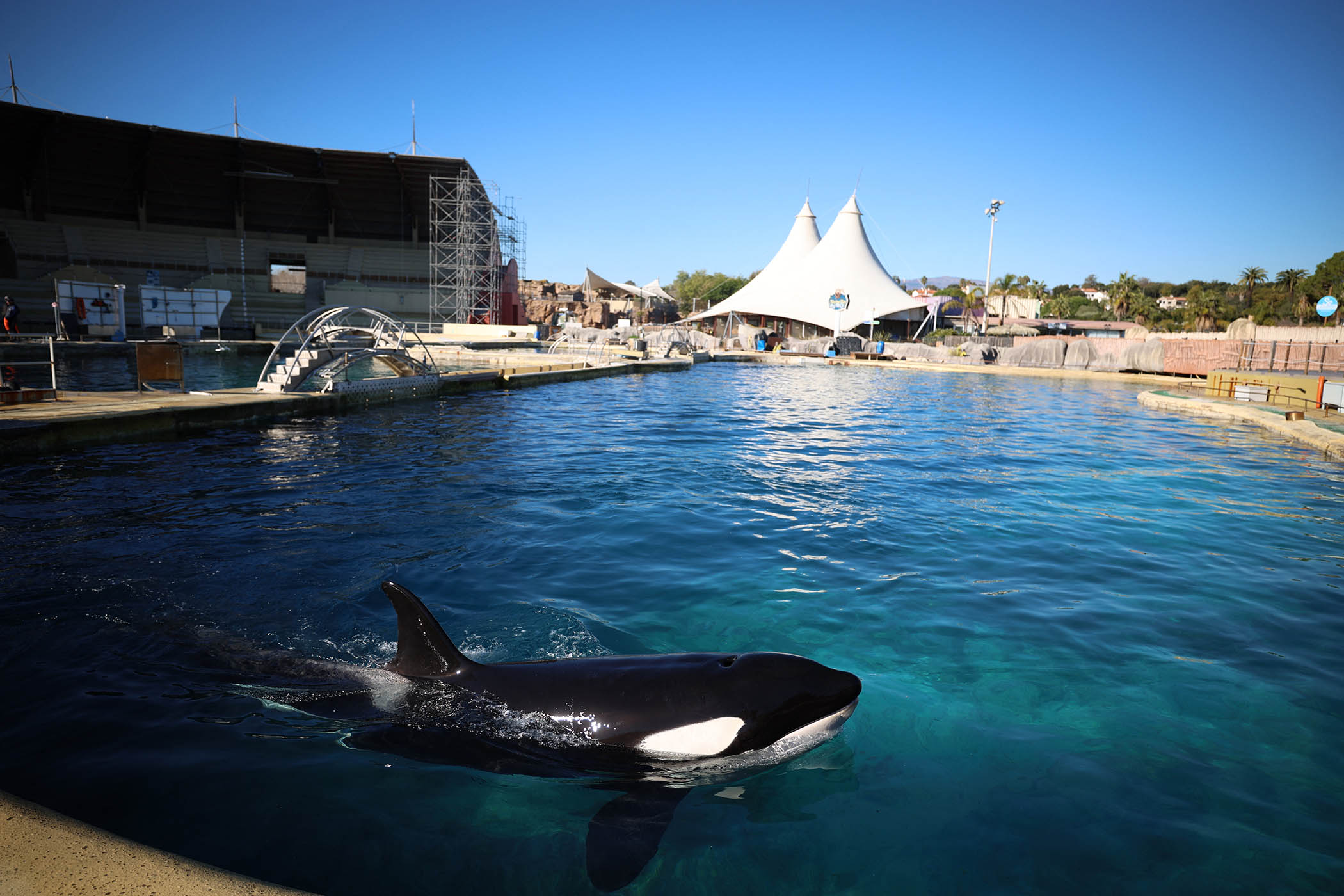As the devastation inflicted on the Caribbean by Hurricane Melissa became clear last week, researchers began to analyse how much the climate crisis had amplified the monster storm.
The warming of the planet had boosted the hurricane’s wind speeds by 11mph (18km/h) and made a storm on this scale four times more likely, according to scientists at Imperial College London.
The havoc inflicted by Melissa – flooding roads, knocking out power supplies and tearing roofs off houses, schools and hospitals in Jamaica – underlined the growing human cost of failed efforts to reduce greenhouse gas emissions, as world leaders prepare to travel to Brazil for the UN Cop30 climate conference, which begins on 6 November.
Ten years ago, at the UN climate summit in Paris, countries pledged to keep the increase in global average temperatures “well below 2C” (35.6F) and, crucially for the most vulnerable island countries, pursue efforts to limit it to 1.5C.
It was a breakthrough after decades of deadlock. Then US secretary of state John Kerry said: “It’s a victory for all of the planet and for future generations.”
Related articles:
Kerry added that it would prevent the worst consequences of the climate crisis from ever happening.
But a decade on, that consensus has fallen apart. The US, the world’s biggest oil producer, has a president who describes the climate emergency as a “con job”. Saudi Arabia, the world’s biggest oil exporter, has blocked efforts to agree on a phasing out of fossil fuels, while big emitters such as India have been defensive about the need to keep burning coal to power their economic growth.
Three years ago, wealthy countries agreed to create a fund that would help lower-income nations deal with the effects of natural disasters, but so far, only a fraction of the funds needed have been pledged. The UN estimates the world is now on track for between 2.6C and 3.1C of warming over the course of this century.
The UN climate summit is one of the few places in the world where rich and poor countries alike get to have their say, and decisions must be made by consensus. That is also its tragedy, however, allowing petrostates to block any mention of oil and gas.
It is also the reason it exists in this form, as the climate crisis – like trade agreements or deals on the spread of nuclear weapons technology - requires countries to cooperate with each other.
Ani Dasgupta, president of the World Resources Institute, an environmental thinktank, said: “It’s terrible, and if we didn’t have it, I guarantee you, we would invent something similar – that’s why all the countries show up.”
This year’s talks take place in the Amazonian city of Belém, where hotels have hiked prices as delegates scramble for rooms and the host nation has arranged additional berths on cruise ships. The total number of delegates has swelled over the years, reaching more than 80,000 as the event becomes a trade fair wrapped around a negotiation, attended by oil industry executives alongside climate activists.

A boy kicks a soccer ball in Belem, Brazil ahead of the Cop summit there this week
The biggest fights are likely to be over any language that targets fossil fuels – which will be fiercely resisted by petrostates – and the scale of finance that flows to the developing world to support cutting emissions and adapting to a hotter planet. At last year’s Cop, countries agreed to scale up finance to developing countries to $1.3tn a year by 2035 (almost 90 times the cost of the 2012 London Olympics). How much of this can be raised and how quickly – at a time when the US and others are slashing foreign aid – will be critical.
The US is the ghost at the feast. Trump has given notice that the US will leave the Paris agreement and it is unlikely to send a delegation to the Belém talks – but he is certain to detonate any agreement that requires global cooperation on carbon reductions. In October, the US threatened retaliation against countries that supported a global carbon tax on shipping. If this year’s Cop is to be a success, it will turn on whether other countries can come together despite US intransigence.
Yet, as the aftermath of Paris shows, even a success turns into a failure.
The Paris deal was followed by a wave of green policies, from the European Green Deal to make the bloc climate-neutral by 2050 to the US Inflation Reduction Act, a combination of tax credits and subsidies to encourage more private investment in clean energy.
“A lot of these policies were framed not for their benefit for the environment,” said Evan Guy, a climate policy expert at Global Counsel, an advisory company. “They were framed in terms of the jobs they would create, the investment in local communities, and there’s been a lag between the announcements and the benefits being realised.”
After Russia’s invasion of Ukraine led to a spike in energy prices and voters increasingly prioritised economic issues, policies to reduce emissions have been challenged by conservative politicians, many of whom, like Trump, have never accepted the scientific evidence of the climate crisis.
The framing of the attack has combined the fear that net zero raises energy bills – despite the fact that clean energy should lead to lower costs for consumers in the long term – and an association with “wokeness”.
Trump’s tax-and-spending bill this summer curtailed core elements of the Inflation Reduction Act, and the EU has diluted its environmental goals, including giving carmakers two extra years to meet emissions targets. Meanwhile, the wars in Ukraine and Gaza have frayed relations between western powers and the rest of the world.
The need to raise defence spending in Europe has diverted resources that could have gone to supporting climate finance. China and the EU’s conflicting attitudes to Russia make it trickier to secure cooperation on other fronts.
Europe faces a dizzying balancing act, having been forced to agree that it will buy $750bn of energy from the US by 2028 – an improbably high number – as the price, in effect, of keeping Trump engaged in the continent’s defence. Last year, carbon dioxide emissions from the burning of fossil fuels reached a record high.
Life on Earth is being reshaped by the climate emergency. The warming of the planet has already contributed to the retreat of glaciers, dwindling sea ice and rising seas that threaten the existence of low-lying island countries.

A home in Brucefield, St Elizabeth, Jamaica, after Hurricane Melissa
Last year was the warmest the planet has experienced since reliable temperature records began in the 19th century, and the global average temperature hit 1.5C above the pre-industrial average.
This 1.5C threshold of the Paris agreement is critical to keeping large parts of the planet habitable. At 1.5C and above, heatwaves and wildfires become more frequent, while a bigger share of the Earth’s population is exposed to droughts and floods.
Behind the baffling acronyms of climate talks, and hair-splitting over the grammar of texts, is a clash between countries that rely on fossil fuels for their prosperity and ones that fear a world of more devastating floods and more powerful storms will wipe them out.
In his opening address at last year’s Cop, Azerbaijan’s president described oil and gas as a “gift from God”. In the talks, Saudi Arabia publicly rejected “any text that targets any specific sectors, including fossil fuels”.
It is no surprise that advocates of action on the climate crisis are calling the annual conference into question.
Christiana Figueres, the former UN climate official who was one of the architects of the Paris deal, signed a letter last year that said the climate talks could not deliver the necessary change “at speed and scale”.
After two years in which Cops were held in petrostates – the United Arab Emirates and Azerbaijan – Figueres and others said countries that did not support the phasing out of fossil fuels should be excluded from hosting the negotiations.
Papua New Guinea withdrew from the talks in Baku last year, with the country’s foreign affairs minister describing it as a “waste of time” that delivered nothing concrete. Several world leaders, including the US president and the leaders of China, France and Germany were also absent, though their countries sent delegations.
Last week, Bill Gates, who has donated billions to efforts to tackle the climate emergency, warned against a “doomsday outlook” and said that efforts should be redirected to alleviating suffering and improving life in a warming world.
But some observers say the slow progress of the climate talks is nothing new, while US reversals as administrations change colour have now become routine. The Bush administration rejected the Kyoto protocol, and Trump has withdrawn the US from the Paris agreement twice.
Global politics might offer little hope, but the rapid progress of clean technology since the Paris deal provides some. In the first half of this year, renewables supplied more of the world’s electricity than coal. More than half of new cars sold in China, the world’s biggest car market, were electric vehicles (EVs). Global investment in clean energy is now almost twice as much as in fossil fuels, according to the International Energy Agency.
Even the opening of a new coal mine in Wyoming – celebrated as the return of fossil fuels by Chris Wright, the former fracking company chief executive who Trump appointed as energy secretary – highlights the shift. The focus of the Brook Mine will be extracting rare earths from the coal it digs up, elements that are used in wind turbines and batteries for EVs. As the growth of datacentres prompts a surge in power demand in the US, the need is increasingly being met by solar and wind.
“I don’t think political noise is going to stop market dynamics,” said Global Counsel’s Guy. “In many cases, it is superior technologies that are displacing older technologies. There are a lot of Republican states like Texas where the economics around renewables just makes sense.”
There are a lot of Republican states like Texas where the economics around renewables just make sense
Evan Guy, Global Counsel
The worldwide expansion of clean power and electric road transport has brought emissions down in some of the wealthiest countries. US emissions peaked in 2005, while the UK peaked in 2007. The latest data suggests emissions from China – which is now the world’s biggest emitting country – have reached a plateau.
The sectors where the least progress has been made are those where the alternatives are nascent, such as shipping, where new vessels need to be built that can run on carbon-neutral fuels. Changing the shipping or aviation industries requires global agreement so that carriers using dirtier propulsion systems cannot undercut ones that switch to green fuels.
Simon Sharpe, who was deputy director of the UK’s Cop26 unit, said: “Those are the sectors where the role of international cooperation is going to be really important, where we need serious, focused diplomacy about the substance of the problem, dealing with trade and standards and policies.”
Time is critical to avoiding the worst effects of the climate crisis. The 10 years since Paris have brought a growing divergence between the world’s richest countries, where some business leaders and politicians fear they have moved too fast – and others deny the existence of the climate emergency altogether – and developing nations, which are increasingly demanding swifter action.
Every year brings fresh evidence of the human cost of delay, from the super-monsoon that struck Pakistan in 2022 to the catastrophic flooding caused by Hurricane Helene in the US last year. This year’s talks in Belém will show whether the world’s leaders can overcome their differences to get back on track.
Melissa, which swept across Cuba and Haiti after tearing through Jamaica, has left dozens dead across the Caribbean and is estimated to have caused $8bn damage. Its timing will concentrate minds.
Photographs by Yamil Lage, Ricardo Makyn, Jorge Saenz/AFP, Getty, AP



